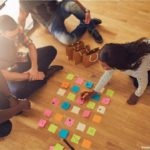 Over the last ten years, I’ve found many articles and studies that I return to frequently. Some summarize lots of research suggestions. Others explore particular questions with verve and clarity.
Over the last ten years, I’ve found many articles and studies that I return to frequently. Some summarize lots of research suggestions. Others explore particular questions with verve and clarity.
I hope you enjoy these as much as I do.
Vital Resources in Psychology: Big Lists
Our students often confuse PERFORMANCE (a high score on a test) with LEARNING (enduring knowledge and skill). Nick Soderstrom sorts through all kinds of evidence to help teachers distinguish between the two. Helpfully, he includes evidence for both physical and cognitive learning.
Learning versus Performance: An Integrative Review, by Nick Soderstrom and Robert Bjork
This comprehensive (!) article examines research behind ten well-known teaching practices: from underlining to retrieval practice. In each case, it looks at the quality of evidence. It then helps you choose those that fit your subject and your students best. (Danger: several sacred oxen gored here.)
Improving Students’ Learning with Effective Learning Techniques, by John Dunlosky (and many others)
Deans for Impact have boiled their suggestions to a list of six. You’ve got everything here from motivation to transfer. It also offers a solid list of sources when you want to check out the primary research.
The Science of Learning, by Deans for Impact
Vital Resources: Enlightening Studies
Regular readers of this blog know that “retrieval practice” helps students learn MUCH more effectively than simple review does. In brief: don’t have students reread a chapter. Have them quiz each other on the chapter. This kind of active recall fosters new learning. In this splendid study, a researcher, a teacher, and a principal move this finding out of the psychology lab and into the classroom.
The Value of Applied Research: Retrieval Practice Improves Classroom Learning and Recommendations from a Teacher, a Principal, and a Scientist, by Agarwal, Bain, and Chamberlain
In this marvelous study, researchers wonder if testing students on material before they’ve even seen it might help them ultimately learn it better. Here’s the fun part: when their first study suggests the answer is “yes,” they then repeat the study four more times in an attempt to prove themselves wrong. Only when they can’t come up with any other explanations for their findings do they finally persuade themselves.
The Pretesting Effect: Do Unsuccessful Retrieval Attempts Enhance Learning?, by Richland, Kornell, and Kau



